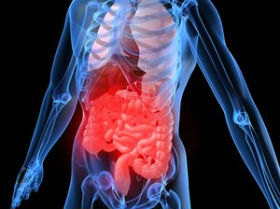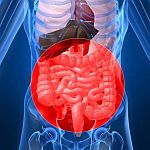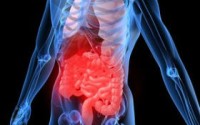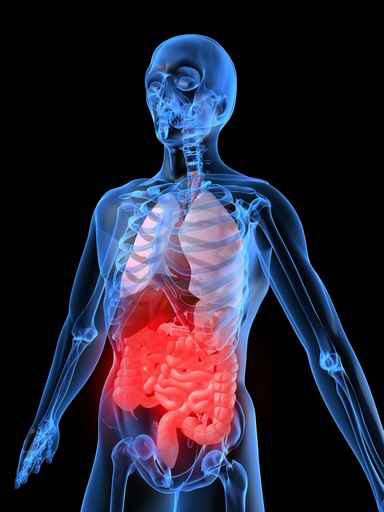General information to understand stomach flu
General information to Understanding the stomach flu: Causes, Symptoms and Effective Treatment Options
The stomach flu, also known as viral gastroenteritis or bacterial gastroenteritis, is an infection that affects the gastrointestinal tract, causing inflammation and various symptoms.
The most common stomach flu symptoms include:
Diarrhea: Frequent loose or watery bowel movements are a hallmark of stomach flu. This can lead to dehydration if not managed properly.
Vomiting: Nausea and vomiting are typical symptoms of stomach flu and can occur alongside or independently of diarrhea.
Abdominal pain and cramps: Individuals with stomach flu often experience discomfort or cramps in the abdominal region.
Fever: Some people may develop a low-grade fever, though not everyone with stomach flu experiences this symptom.
Headache: Headaches can occur as a result of dehydration and the general impact of the virus on the body.
Muscle aches: General body aches and pains are common with viral infections like stomach flu.
Fatigue: Stomach flu can lead to feelings of tiredness and weakness.
Loss of appetite: Due to the discomfort and nausea, individuals with stomach flu may have a reduced appetite.
It’s essential to note that stomach flu is caused by various viruses, such as norovirus, rotavirus, or adenovirus. These viruses are highly contagious and can spread through contact with infected individuals, contaminated surfaces, or consuming contaminated food or water.
Stomach flu symptoms usually start within one to three days after exposure to the virus and can last for a few days to a week. Most people recover without any specific treatment and only require supportive care, such as staying hydrated and getting plenty of rest. However, for vulnerable populations like young children, the elderly, and those with weakened immune systems, the symptoms can be more severe, and medical attention may be necessary to prevent complications like dehydration. If you or someone else is experiencing severe symptoms, it’s important to consult a healthcare professional for proper evaluation and stomach flu treatment.

General information on stomach flu treatment:
Please remember to consult a healthcare professional for personalized advice. The viral gastroenteritis is usually caused by a viral infection, and the primary goal of stomach flu treatment is to relieve symptoms and prevent dehydration.
Here are some general guidelines for managing stomach flu:
Stay hydrated: Drink plenty of fluids, such as water, clear broth, oral rehydration solutions (ORS), or electrolyte drinks, to replace the fluids lost through vomiting and diarrhea. Avoid caffeine and alcohol, as they can worsen dehydration.
Rest: Get plenty of rest to help your body recover from the infection.
Gradually reintroduce food: Start with bland, easy-to-digest foods such as toast, crackers, plain rice, bananas, applesauce, and boiled potatoes. Avoid fatty, spicy, and greasy foods, as they can irritate the stomach.
Avoid dairy products: Dairy can be difficult to digest during the infection, so it’s best to avoid it until you feel better.
Use over-the-counter medications: Over-the-counter medications like anti-diarrheal agents or antiemetic drugs may help relieve symptoms, but it’s essential to consult a healthcare professional before using them, especially for children and elderly individuals.
Practice good hygiene: Wash your hands thoroughly and frequently, especially after using the bathroom and before eating, to prevent the spread of the virus to others.
Isolate yourself: Stay home and avoid close contact with others to prevent the spread of the virus.
If your symptoms are severe or persist for an extended period, it’s essential to seek medical attention. Severe dehydration, persistent vomiting, high fever, and severe abdominal pain are signs that you should see a healthcare provider promptly.
Remember that viral gastroenteritis is caused by a virus, so antibiotics won’t be effective as a treatment. Instead, the focus is on symptom relief and supportive care until the infection passes.

Bacterial gastroenteritis is an infection of the gastrointestinal tract caused by various bacteria. It leads to inflammation of the stomach and intestines, resulting in symptoms similar to stomach flu, such as diarrhea, vomiting, abdominal pain, and fever. Bacterial gastroenteritis is typically transmitted through the consumption of contaminated food or water, contact with infected individuals, or poor hygiene practices.
Common bacteria that can cause gastroenteritis include:
Escherichia coli (E. coli): Some strains of E. coli can produce toxins that cause severe illness, leading to symptoms like bloody diarrhea and abdominal cramps.
Salmonella: Often associated with undercooked poultry, eggs, and other contaminated foods, salmonella infection can cause diarrhea, fever, abdominal cramps, and sometimes vomiting.
Campylobacter: This bacterium is usually found in raw or undercooked poultry, unpasteurized milk, and contaminated water. It can cause diarrhea (sometimes bloody), abdominal pain, fever, and nausea.
Shigella: Shigella is transmitted through contaminated food and water and can lead to severe diarrhea, abdominal pain, fever, and sometimes dysentery (diarrhea with blood and mucus).
Vibrio: Vibrio bacteria can cause gastroenteritis through the consumption of raw or undercooked seafood, leading to symptoms like watery diarrhea, abdominal cramps, and vomiting.
Yersinia: Yersinia infection is often associated with contaminated food, particularly raw or undercooked pork products. It can cause diarrhea, fever, and abdominal pain.
Treatment for bacterial gastroenteritis may include:
Fluid replacement: To prevent dehydration caused by diarrhea and vomiting, it is crucial to stay hydrated by drinking plenty of fluids or, in severe cases, receiving intravenous fluids in a medical setting.
Antibiotics: In some cases, bacterial gastroenteritis may require antibiotic treatment, particularly for severe infections or certain bacterial strains. However, not all cases of gastroenteritis require antibiotics, as some resolve on their own.
Rest and symptom management: Getting sufficient rest and using over-the-counter medications to alleviate symptoms such as fever and abdominal pain can help in the recovery process.
If you suspect you have bacterial gastroenteritis or experience severe symptoms, it is essential to seek medical attention for proper diagnosis and appropriate treatment. Additionally, practicing good hygiene, properly cooking and handling food, and ensuring safe water sources can help reduce the risk of bacterial gastroenteritis.


